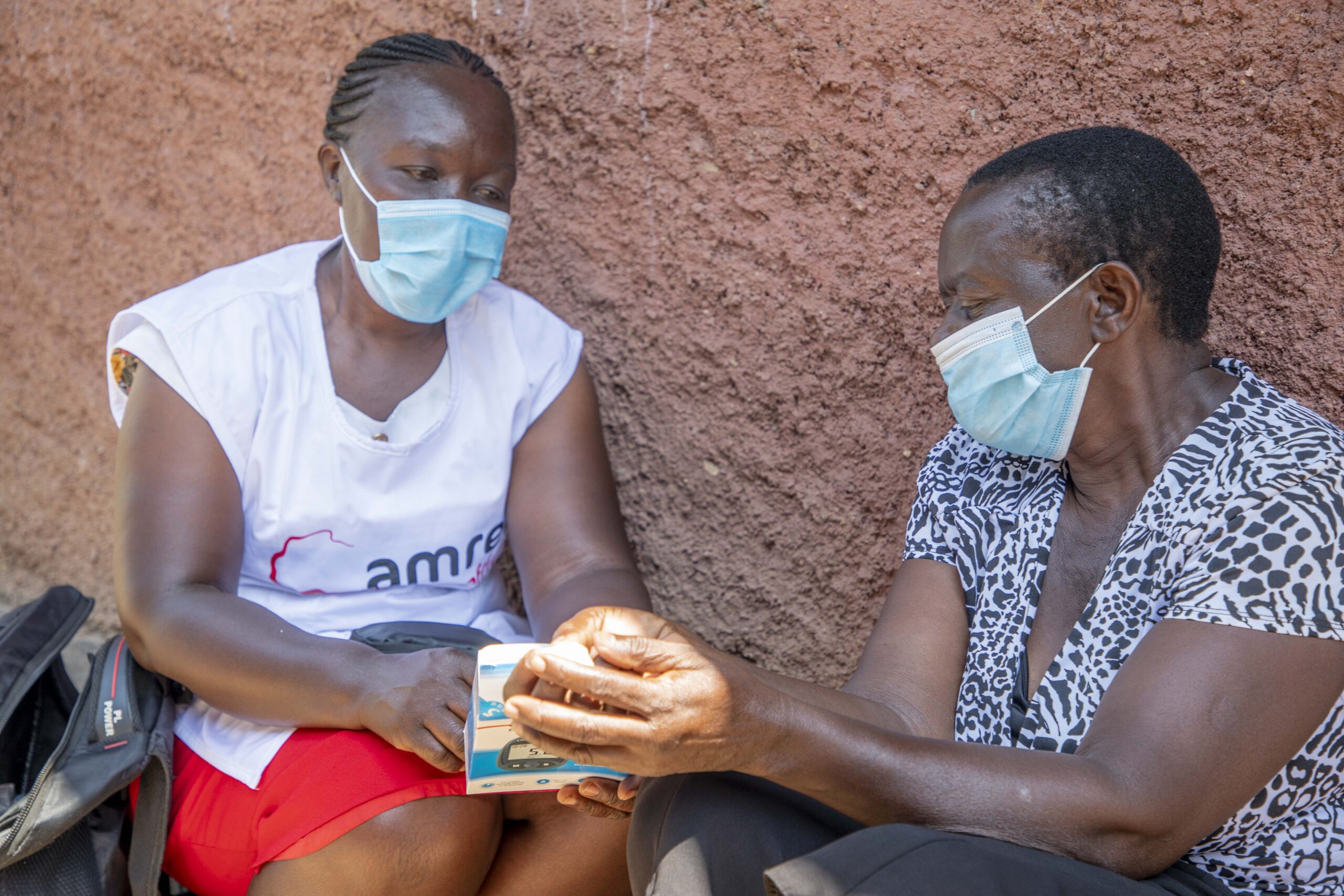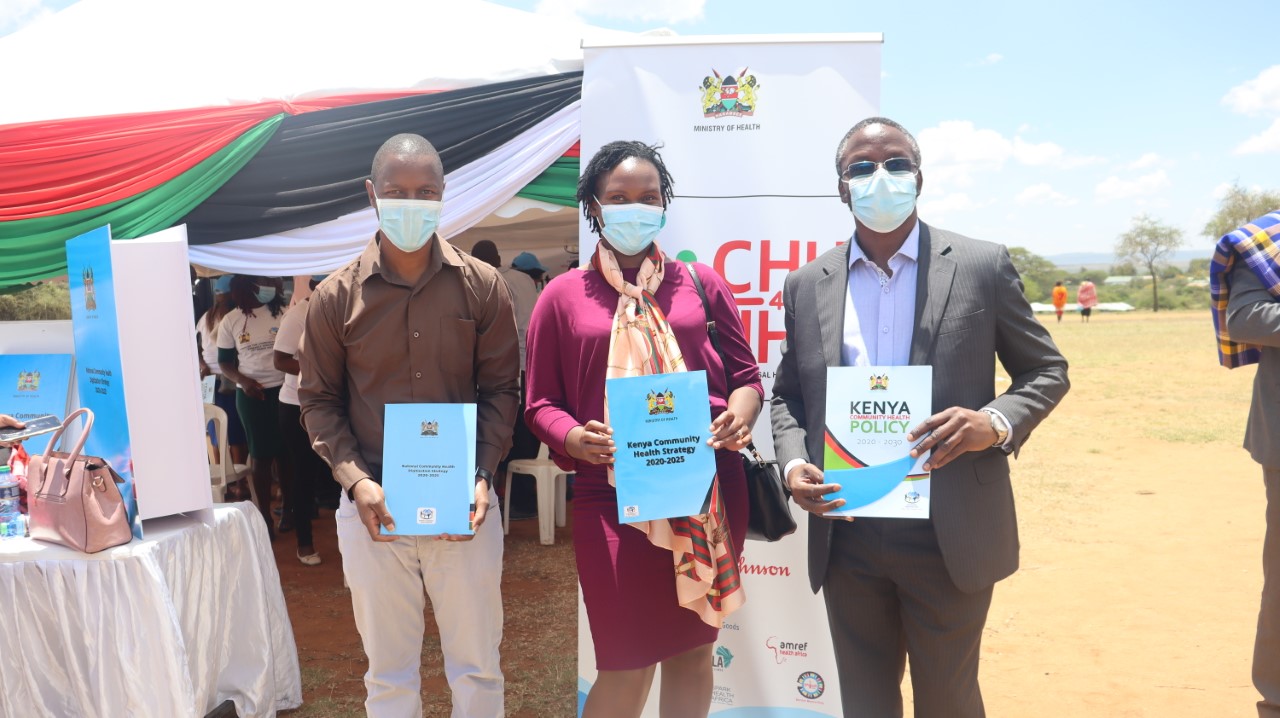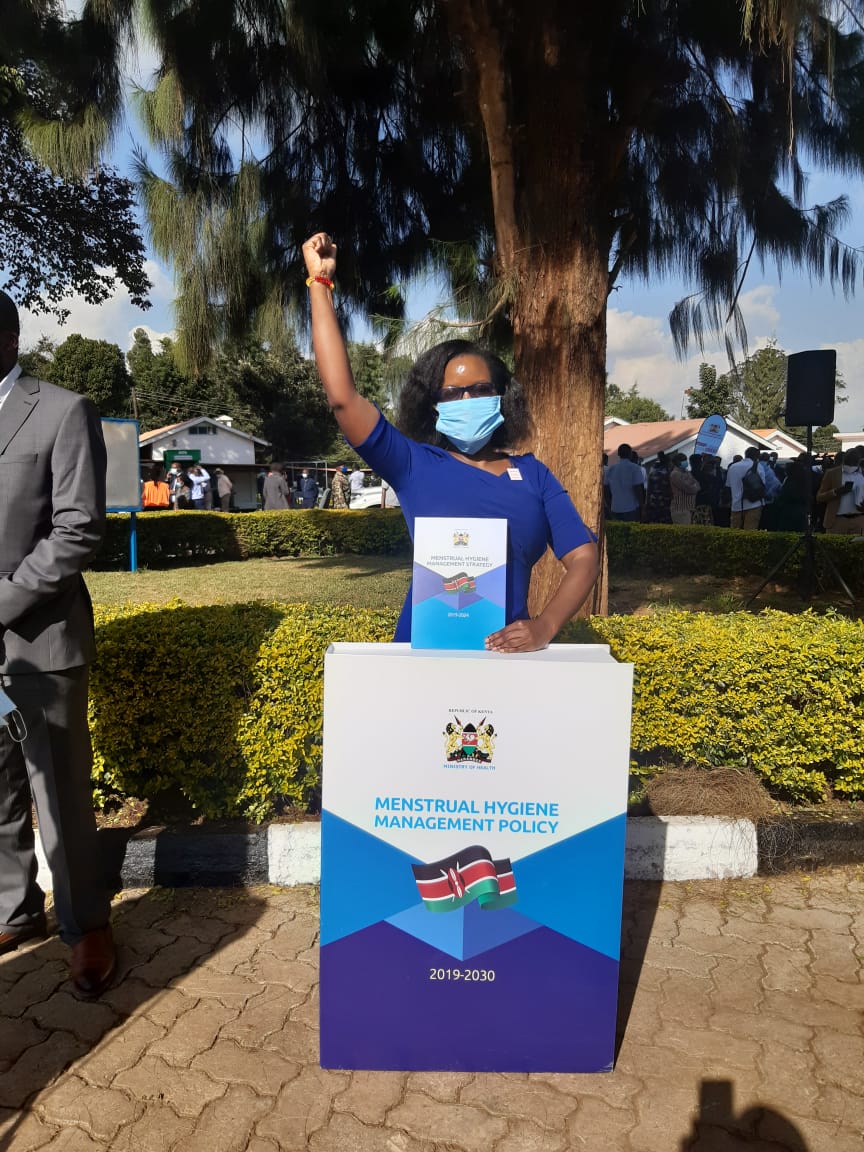Access to Toilets for Persons Living with Disability
Wednesday, 23 March, 2022

Access to convenient and comfortable public toilet facilities remains a significant challenge for many people in Kenya who live with various forms of physical disability. In many communities, latrines are not designed and placed in a way that is easily accessible to this vulnerable group. Toilets are essential in Menstrual Hygiene Management (MHM), including for girls living with disabilities. Lack of friendly and accessible Water, Sanitation and Hygiene (WASH) facilities poses a significant obstacle to girls living with disabilities.
In Homa Bay County, finding assistive toilets in communities is almost impossible. Many institutions do not have sanitation facilities rehabilitated to accommodate pupils with disabilities. The majority of toilets designed in communities require squatting, which is not suitable for children who are unable to squat or bend. In addition, there are no rails provided for those with physical impairments to support themselves.
At Nyamuga Special School for Physically Challenged, located in Mbita Sub-county, the Deputy Teacher, Mrs Pilsta Asembo describes the difficulty of using toilets not designed for people with disability, especially girls. “We do not have enough adaptable toilets and sanitary disposal facilities for our pupils. Students with disability need extra care, especially girls who need clean and accessible toilets at all times, especially during menstruation,” said Mrs Asembo.

She stressed that access to information is also a challenge as most existing education material on WASH and menstrual hygiene do not include visuals to cater for those with a disability. “We need visual IEC material for people with disability on menstrual management and COVID-19 related information so that they are not left out with this critical information,” she added.
Speaking during the dignity pack distribution supported by Amref Health Africa in Kenya with the support from the Government of Canada through Global Affairs Canada, Mrs Asembo stated the need to address the plight of females with disabilities in Menstrual Hygiene Management and the provision of adaptive toilets that girls can use independently and safely when menstruating.
“This community needs assistance to develop modified toilets and sanitary disposal facilities in towns, schools and community buildings that are inclusive to people with disabilities,” she says.
During the session, the girls were also sensitized on menstrual hygiene management, specifically, how to manage their monthly periods safely and hygienically. They were empowered to participate fully in societal life despite various challenges.
The school has managed to construct six friendly toilets for the students, which are still short of the standard requirements. Despite the few sanitary facilities, the school administration has tried to adjust the existing toilets to suit the needs of students with physical disabilities.
Lack of accessible WASH facilities denies people living with disabilities their basic human rights. Disability-friendly toilet facilities will decrease the dependency problem for those with disabilities. In addition, access to toilets and information for people with a disability is a prerequisite to achieving Sustainable Development Goal (SDG) number 10.
Author: Maureen Cherongis, Media and External Relations Officer, Amref Health Africa.





Comments
No comments found.